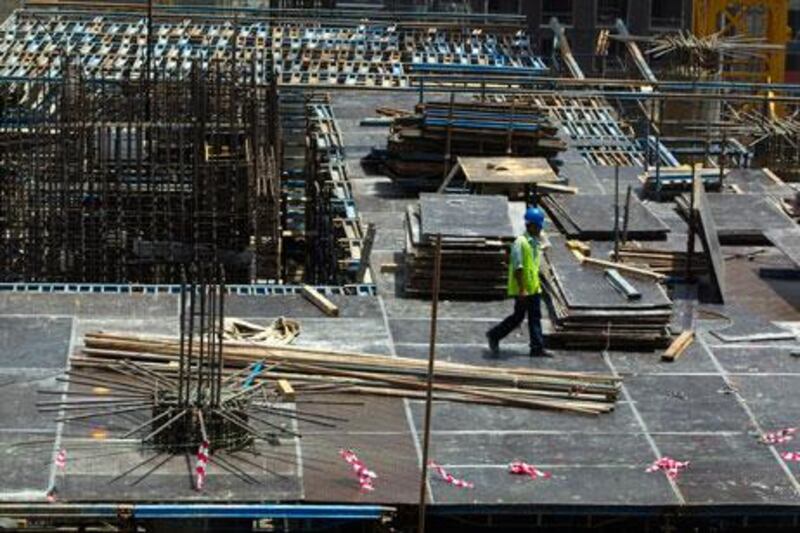ABU DHABI // Some of the emirate's biggest companies will have to reduce the amount of waste they produce or face fees.
Under new rules due to come into force in March, companies that generate more than 250 tonnes of waste a year have to file annual reports on the steps they have taken to reduce it, such as recycling schemes and buying items with recycled content.
The changes will affect about 2,000 companies.
The regulations are part of Nadafa, a waste-reduction scheme launched in 2011. It stated that all companies had to report their waste production, but until now they did not have to outline steps towards reducing waste.
Construction companies, the biggest generators of waste, will be most affected, followed by other large commercial and industrial businesses.
Their reports will be scored on a 100-point scale. They will get up to 10 points for submitting a complete report, and up to 30 more for giving accurate and detailed information about their waste.
Companies can earn up to 20 points for using recycled material, and up to 40 for actively trying to reduce, recycle or reuse waste.
To achieve a perfect score, a company would have to cut waste by at least 20 per cent, according to Hani Hosni, head of environment, health and safety at the Abu Dhabi Centre for Waste Management.
Companies currently pay Dh225 per tonne of waste, up to a maximum of Dh50,000 a year. Under the new rules they will be charged an extra percentage point for every point lost on the assessment. So a company generating 250 tonnes of waste a year will pay the maximum Dh50,000, but if it scores only 70 points for its waste report, it would pay an extra 30 per cent, or Dh15,000.
Even so, Mr Hosni said, the revenue generated would be just a fraction of the more than Dh1 billion Abu Dhabi spends each year on waste disposal.
Without such incentives to cut waste, he fears growing wealth and population could push the annual bill for waste disposal as high as Dh22bn a year by 2030.
To avert a crisis, companies and individuals need to think about recycling and other ways to reduce waste, Mr Hosni said. "It is not something you throw away and forget about it," he added.
Glenn Platt, environmental manager at KEO Infrastructure in Dubai, said the success of the new rules would depend on how easy they were to implement.
"Any initiative to reduce waste is good, so long as it is easy to follow and can be suitably monitored so that we see a result," he said.
"This will be the greatest challenge for the Centre, as the standard methodology for filing a report will need to be clear and the assessment of the resultant reports for completeness must be easy for those who are auditing the reports."
The Centre for Waste Management says Nadafa has already helped increase recycling capacity by 25 per cent, but Mr Platt was more cautious, saying there has not been enough data released. The impact of the new measures has also yet to be seen, he said.
"Economic-based initiatives are always a great way to drive waste reduction," he said. "Unfortunately, sometimes it's the only way. In this case, the major waste producers are being targeted.
"How this will impact on the waste generation and recycling rates will depend on whether the economic penalties are greater than the cost of finding an alternative and whether an alternative actually exists.
"It is difficult to say at this moment in time what impact it will have, but for the sake of the local environment I hope it has a significant one."





